Hubspot Improves Conversion by 82% with AI-powered Email Personalization
Hubspot recently published an AI email marketing case study showing how they increased conversion by 82% with generative AI.
We’ve anticipated for months that businesses could achieve huge conversion gains with AI-powered email personalization. Thanks to Hubspot’s case study, we now have a solid case study and a better understanding of how to build out email personalization at scale.
The Hubspot case study is a crucial advancement in AI marketing because it details their process for improving email conversion with AI personalization.
Choosing AI Use Cases
The Hubspot marketing team started by prioritizing tasks and workflows that could be accelerated with AI. They identified several marketing problems for consideration–all common issues for marketing teams.
They choose AI use cases to tackle by:
- Building a dedicated AI solutions team to identify marketing AI use cases.
- Brainstorming a list of 100+ marketing AI use cases.
- Evaluating each potential AI use case based on its:
- Breadth of impact
- Efficiency and speed
This process helped them prioritize AI use cases. Ultimately, they chose to implement AI email personalization because of its likely impact on important metrics and applicability across many marketing initiatives.
The Problem
The HubSpot team focused on visitors who download educational resources from their website. Their goal was to increase engagement with their marketing emails and push their website visitors closer to a sale.
Hubspot’s email CRO efforts had historically only produced small, incremental gains. The team hoped to use AI to achieve a more significant lift in conversion.
The Goal
The two goals of the Hubspot marketing team relevant to this case study were to:
- Learn how to accelerate marketing workflows and results with AI
- Improve email conversion rates to better nurture leads to a purchase
Metrics
The primary metrics the Hubspot team targeted for improvement were email open rate and click-through rate.
Methodology
The Hubspot team made a critical decision: they paired an AI expert with an email marketing and brand persona expert. This ensured that brand voice and email marketing best practices were applied at every step of the AI implementation.
The team designed their AI personalization as follows:
- When website visitors complete a download form, they submit their name, company website URL, phone number, and email.
- Hubspot scrapes their company’s website to learn more about what they do. They combine this information with other profile data on this visitor–e.g., pages visited, previous downloads, webinar attendance, etc.
- This information allows the AI to infer what the visitor is trying to accomplish, which led them to download the resource.
- Using the “jobs to be done” framework, AI writes a persona that details the visitor’s journey until this point and what they are looking to accomplish today.
- AI predicts the perfect website resources (whether or not they exist) that would help the visitor accomplish their goals.
- AI performs a semantic search in a vector database to find website resources similar to the ideal resources.
- Finally, AI writes a personalized email to the visitor, including the selected website resources, explaining how they could help them accomplish their goals.
Technology Used
To achieve their solution, Hubspot utilized the following tools:
1) GPT4 – writes an individualized persona for the lead using the “jobs to be done” framework and predicts the ideal website resources for this individual (whether the resources exist or not).
2) Vector database – uses semantic search to identify existing website resources relevant to the ideal resources generated by the LLM’s prediction.
3) GPT4 – writes a personalized email using the individualized persona and the relevant resources.
Personalized Persona Example
Hubspot released the following example of a persona written by GPT4 for a website visitor who runs a coffee shop.
[Name], associated with [Company], a coffee online retailer, has demonstrated a consistent interest in enhancing her marketing strategies. Initially engaging with influencer marketing resources, she has recently shifted her focus towards content organization and planning. As the winter season unfolds, her interest in content calendars suggests a drive to streamline marketing efforts, possibly in preparation for seasonal promotions or new product launches. [Name] ‘s journey from influencer marketing to content planning reflects a strategic approach to brand growth and audience engagement.
Results
Hubspot’s email conversion rate increased by 82%!
They haven’t mentioned any evidence that this increase in conversion leads to sales. But, more engagement with their content likely moves website visitors closer to a purchase.
Learnings
This case study provides critical lessons learned that can be applied to nearly every marketing team implementing AI for email personalization.
Here are some lessons learned from the case study:
1) Effective prioritization
The Hubspot team measured the productivity and marketing impact of each potential AI use case. This helped the team prioritize 100+ AI ideas and deploy their resources where they would have the most impact.
2) Redesign entire workflows
Hubspot focused on AI projects aligned with critical metrics and have a significant business impact. Many marketers are experimenting with AI for individual tasks and miss how AI could help them redesign entire workflows. Hubspot developed the AI email personalization workflow rather than using AI to automate individual tasks in the existing segmentation workflow.
3) Collect the right data
Hubspot combines the download form, website behavioral data, and information scraped from the web to build the visitor’s profile. The visitor’s role and website are most useful for building the personalized visitor persona.
4) Predictive, not generative AI
The Hubspot team uses an LLM to do prediction when it infers the most helpful resources for each visitor. Many marketers don’t realize that LLMs can be used for prediction. I’ve used LLMs for prediction and classification tasks like categorizing contacts.


